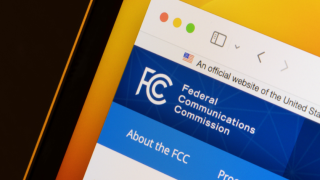The deal is expected to close in the first half of 2025, pending legally binding commitments aimed at safeguarding competition and ensuring consumer benefits.
While the decision signals a seismic shift for the UK telco sector, industry experts say that significant challenges may lie ahead.
Subscribe today for free
A milestone in UK mobile
“This mega-merger marks one of the most significant moments in the history of UK mobile,” says Kester Mann, director of consumer and connectivity at CCS Insight.
“The CMA’s decision largely strikes a good balance between nurturing competition and encouraging investment.
“It should pave the way for more-efficient investments to bring about much-needed improvements to mobile services in the UK.”
Matthew Howett, founder and CEO at Assembly Research, concurs: “Be in no doubt – today’s greenlighting of the merger sets the wheels in motion for a transformation of the UK’s mobile market and, ultimately, the experience for consumers.
“While Sky may challenge the decision, a successful appeal would be hard-fought and expensive.”
Vodafone and Three have committed to a significant investment package, including enhancing network capacity, improving wholesale services, and ensuring customer protections.
Paolo Pescatore, TMT analyst at PP Foresight said: “The CMA has done a thorough job scrutinising this deal.
“Now it’s up to both parties to deliver on their promises, which should mean wins for UK plc in the form of network investment and better services for consumers.”
However, as Mann warns, “With approval secure, the hard work really begins.”
He highlights the complexities of integrating two established networks with distinct suppliers, branding, and retail footprints. “Rivals should be ready to pounce if any stage of the integration goes awry.”
Consumer impact and competitive dynamics
Consumer benefits, such as better services and competitive pricing, are a key expectation of the merger.
But Pescatore cautions: “Rivals will have a window to lure disgruntled customers during the painful integration process.”
For Vodafone and Three, achieving network leadership will be critical. “How much of the promises will actually be spent on networks, given that 5G is already widely available?” Pescatore questions, noting that EE remains the benchmark for network quality.
The deal’s approval may have broader implications for European telco consolidation. “This is a positive outcome for the broader European sector, which has been clamouring for greater leniency on mergers,” says Mann. “It may give operators in other markets fresh confidence to strike new deals.”
As Howett underscores, the CMA’s work isn’t over, with Ofcom taking on an enhanced role in oversight and enforcement. “Its monitoring must be agile to ensure the merged entity lives up to expectations,” he says.
While this deal reshapes the UK telecoms market, it may also mark the end of an era for major telco mergers. “This will most likely be the last major deal the CMA will see in telco,” Pescatore predicts.
“There are few strategic moves left within the UK.”
RELATED STORIES
Industry reacts to CMA’s phase 1 decision on Vodafone, Three merger






